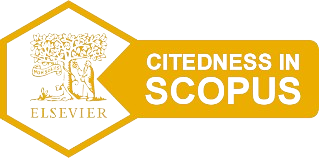Successful Accreditation Techniques
DOI:
https://doi.org/10.15408/tjems.v7i2.20592Keywords:
accreditation techniques, successful accreditation, Meeting Technique, program matrixAbstract
Abstract
The challenges of accreditation reviews create a sense of stress across academic institutions that can be significantly reduced when strategies are implemented and maintained. Understanding the purpose, value, and benefits of the accreditation process is critical. Two techniques that lead to accreditation success include ongoing program meetings resulting in assigned tasks that address government or commission evaluation standards, and the use of a program matrix. The article includes meeting strategies and a universally adaptable matrix design. Moving from stress to success is possible when the techniques are linked to all standards and subsections, and each task successfully meets accreditation requirements.
Abstrak
Tantangan akreditasi menciptakan rasa stres di seluruh institusi akademik, hal ini dapat dikurangi, secara signifikan ketika strategi diterapkan dan dipertahankan. Memahami tujuan, nilai, dan manfaat dari proses akreditasi sangatlah penting. Dua teknik yang mengarah pada keberhasilan akreditasi, termasuk program rapat yang sedang berjalan sehingga menghasilkan tugas-tugas saat membahas standar evaluasi pemerintah atau komisi, dan penggunaan matriks program. Artikel ini mencakup strategi rapat dan desain matriks yang dapat disesuaikan secara universal. Beralih dari rasa stres akan keberhasilan akreditasi, hal ini memungkinkan jika teknik ini dikaitkan dengan semua standar dan subbagian, serta setiap tugas yang berhasil memenuhi persyaratan akreditasi.
How to Cite: Baker, S., Camden-Anders, S. (2020). Successful Accreditation Techniques. TARBIYA: Journal of Education in Muslim Society, 7(2), 226-240. doi:10.15408/tjems.v7i2. 20592.
References
Bahr, M. (2018). Valuing the accreditation process. NADE Digest [Winter], 16.
Casazza, M. (2018). Accreditation: A value-added proposition. NADE Digest [Winter], 3-7. Choiriyah, S., Kumaidi, & Kartowagiran, D. (2018). Developing Delta Internal Quality Assurance to evaluate the quality of Indonesian Islamic universities. Journal of Social Studies Education Research, 9(3), 177-197.
Colbert, A., Levary, R., & Shaner, M. (2000). Determining the relative efficiency of MBA programs using DEA. European Journal of Operational Research, 125(3), 656–660.
Corpus, M. (n.d.). Agency of Chartered Colleges and Universities in the Philippines. (n.d.). The Stages of Accreditation 1-4. Retrieved January 27, 2021 from AACCUPhttp://www.aaccupqa.org.ph/index.php/aaccup-accreditation.
Ferguson, J. & Ludman, N. (2018). An overview of NADE accreditation. NADE Digest [Winter], 9-10.
Garfolo, B. T. & L’Huillier, B. (2015). Demystifying assessment: The road to accreditation. Journal of College Teaching & Learning [Third Quarter], 12(4), 151-169.
Gibbons, H. & White, H. (2019). A comparative study of LIS accreditation frameworks in Australia, New Zealand, United States, and Canada. Journal of Education for Library and Information Science, 60(4) 241-264.
Ilyas, M. (2019). Determining critical success factors for quality and accreditation through Delphi Technique. International Journal of Higher Education, 8(3), 148-158.
Higher Learning Commission. (2020). New criteria for accreditation. 1-8. Retrieved January 27, 2021, from https://www.hlcommission.org/
Ilyas, M. (2019). Determining critical success factors for quality and accreditation through Delphi Technique. International Journal of Higher Education, 8(3), 148-158.
Lucas, P., Fleming, J., & Bhosale, J. (2018). The utility of case study as a methodology for work integrated learning research. International Journal of Work-Integrated Learning [Special Issue], 19(3), 215-222.
Mc Allister, L. & Nagarajan, S.V. (2015). Accreditation requirements in allied health education: strengths, weaknesses, and missed opportunities. Journal of Teaching and Learning for Graduate Employability, 6(1), 2-24.
Montoneri, B. (2014). Teaching improvement model designed with DEA Method and management matrix. The IAFOR Journal of Education [Winter], 2(1) 1-31. Retrieved February 4, 2021, from Missouri State University, Assessment Plan Documents MSU Public Affairs Mission Assessment Plan Instructional Webinar. https://www.missouristate.edu/assessment/the-assessment-process.htm
NADE Accreditation Commission. (2018). NADE accreditation: The right decision for the current time. National Association for Developmental Education. Retrieved January 27, 2021 from https://thenade.org/Mission-Vision-and-Goals.
Northwest Commission on Colleges and Universities. (2020). Accreditation standards and policies: NWCCU 2020 Standards. Retrieved January 27, 2021 from https://nwccu.org/accreditation /standards-policies/standards/
Oraison, H., Konjarski, L., & Howe, S. (2019). Does university prepare students for employment? Alignment between graduate attributes, accreditation requirements, and industry employability criteria. Journal of Teaching and Learning for Graduate Employability, 10(1), 173-194.
Prince, D. (2012). American accreditation: Why do it? Higher Learning Research Communications, 2(3), 45-51.
Rosyidah, R., Matin, & Rosyidi, U. (2020). Internationalization in higher education: University’s effective promotion strategies in building international trust. European Journal of Educational Research, 9(1), 351-361. Retrieved January 27, 2021 from https://doi.org/10.12973/eu-jer.9.1.351
Western Washington University. (2006). Tools and techniques for program improvement: A handbook for program review and assessment of student learning. 1-128. Frye, R., McKinney, G.R., & Trimble, J.E. Available through the Office of Institutional Assessment, Research, and Testing (OIART), Retrieved January 27, 2021, from OIART website at www.wwu.edu/depts/pdfassess/
Western Senior College and University Commission. (2013). Accreditation resources handbook. Retrieved January 27, 2021 from https://www.wscuc.org /resources/handbookaccreditation-2013/part-ii-core-commitments-and-standards-accreditation/wasc standards-accreditation-2013.











